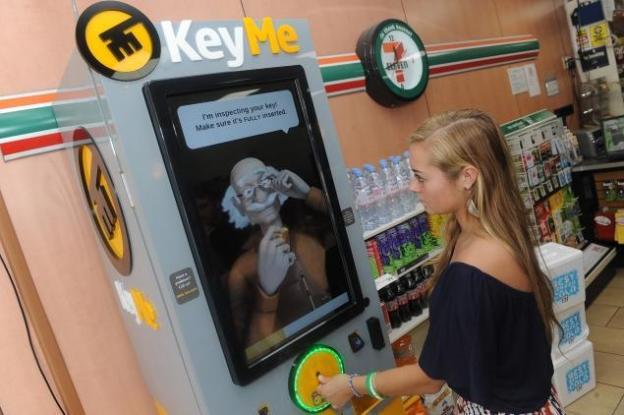
Mentioned in the New York Business Journal today, KeyMe is a startup in Long Island City, NY that wants to make sure you never get locked out of your home or office again. In a partnership with 7-Eleven, the company has installed KeyMe kiosks in Manhattan which allow users to scan and store key creation information in the cloud. Storing your key is completely free, but printing off a replacement copy after losing the original will cost the user approximately $20. In order to bring up the digital copy of a key, the user must scan their fingerprints in order to access the data.

Regarding security, KeyMe doesn’t store any information about where a user lives or even their name. Besides an email address, the only piece of information that’s tied to the digital key file is the fingerprint of the user.
In addition, verified users have to get past the credit card confirmation to print a copy. If the user chooses to link their email account to their digital key file, an email will be issued to the user the moment a key has been printed at a KeyMe kiosk.
If the phrase “Do Not Duplicate” is printed on the side of a key, KeyMe will not be able to store or print a copy of that key. At kiosks, users can choose from various decorative key designs including standard brass and a version that has a bottle opener on the other end. Just like a hardware store, users can also make copies of their key for prices between $3.50 to $6. The company hopes to continue to expand throughout other locations within Manhattan as well as the rest of the United States in the future.


